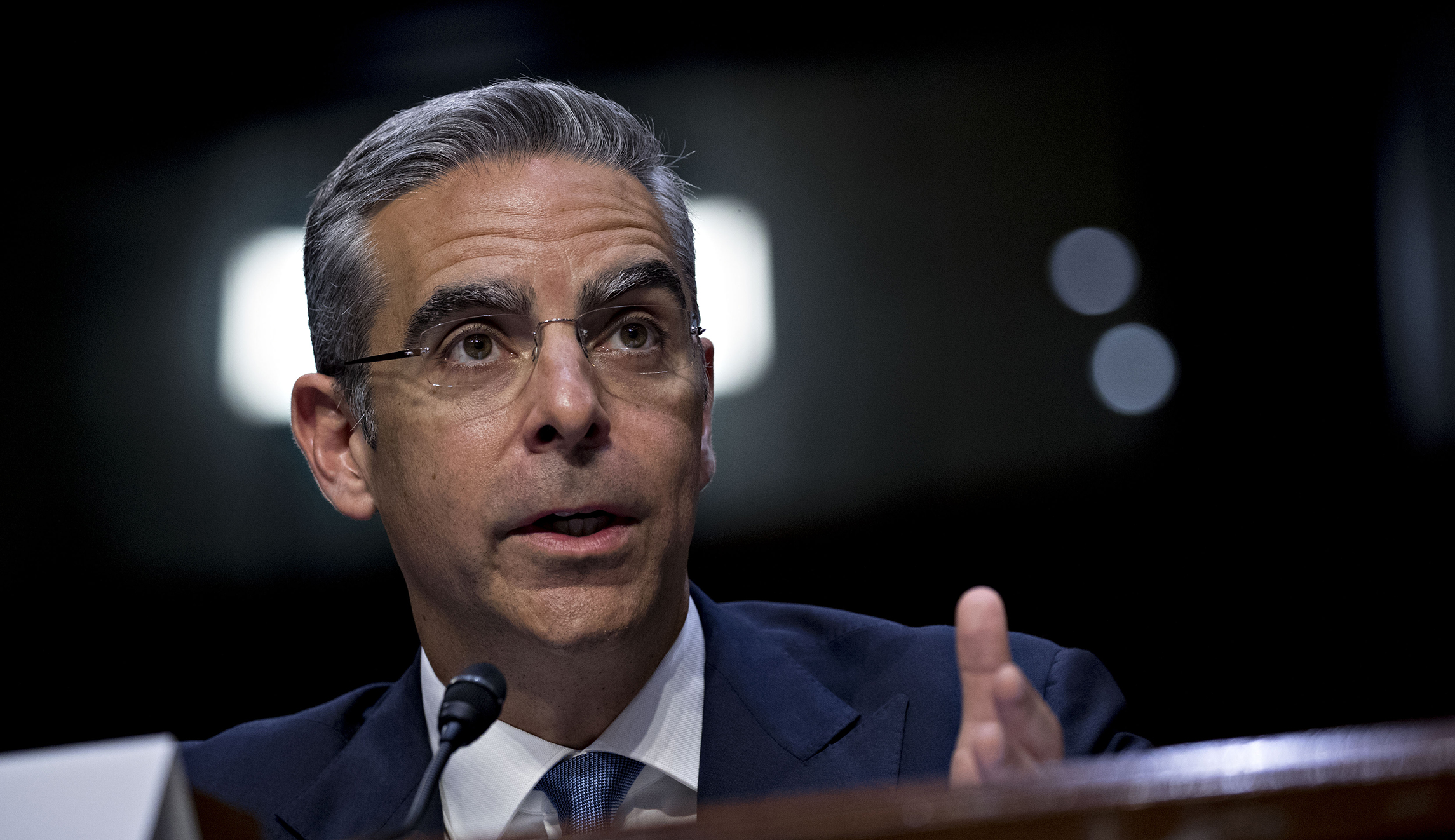Sen. Sherrod Brown put it the most bluntly, but few of his colleagues on the Senate Banking Committee demurred: Every time Americans trust Facebook, they seem to get burned.
Given the social media pioneer’s failure to protect user data, two investigations by the Federal Trade Commission in the past decade and its misuse by Russian agents in the 2016 presidential election, the Ohio Democrat asked why the U.S. or any world government should have confidence in Facebook’s development of a digital currency.
“Their motto has been, ‘Move fast and break things’ and they certainly have,” Brown said during a committee hearing on Tuesday in which he blamed the platform for coarsening political debate in the U.S. as well as failing to prevent misuse by genocidal killers in Myanmar. “Now, Facebook is asking people to trust them with their hard-earned paychecks.”
The blunt questions illustrate the deep skepticism that Mark Zuckerberg’s company faces in Congress, particularly with its proposed cryptocurrency. While the Trump administration has already warned that such currencies — generated through so-called mining, or confirming transactions on a shared digital ledger — are liable to misuse, Facebook’s audience of 2 billion users a month raises the risks exponentially.
With that level of reach, the digital currency could become big enough overnight that its failure might imperil the financial system, Federal Reserve Chairman Jerome Powell told lawmakers last week, echoing concerns from regulators worldwide.
The potential scale means Libra should be “subject to the highest level of expectations” as well as regulations requiring risk-controls and capital reserves for crises, Powell said.
Facebook, which said it shares such concerns, attempted to prevent some of the pushback by linking Libra to a basket of world currencies including the dollar and the British pound, and setting up a governing body, the Libra Association, in which it will have no more voting power than any of the other 100 eventual members.
The company “will not be in a position to control the association, nor will Facebook or the Libra Association position themselves to compete with sovereign currencies or interfere with monetary policy,” David Marcus, the Facebook executive working on the project, told committee members during the first of two days of congressional hearings.

While Facebook has promised that it wouldn’t have direct access to data on customer transactions with Libra, which would be handled through a digital wallet known as Calibra, senators questioned whether the company could be relied upon to keep that commitment and asked if the Libra Association was based in Geneva, Switzerland, to limit U.S. oversight.
Sen. John Kennedy, a Louisiana Republican, cited Facebook’s lagging disclosures about accounts operated by Russian software “bots” during the 2016 election to question the firm’s fitness for the project.
“Facebook wants to control the money supply,” he said. “What could possibly go wrong?”
Libra is important to the Menlo Park, Calif-based company because it positions Facebook to take advantage of a lucrative new market. With the cryptocurrency and its Calibra wallet, Facebook could offer payment capabilities to 1.7 billion people in developing nations who lack access to banks but often carry smartphones built on Google’s Android platform that can tap digital cash, said Justin Post, an analyst with Charlotte, North Carolina-based Bank of America.
To accomplish that, Facebook must not only overcome congressional skepticism and open condemnation by President Trump but satisfy regulators that it can and will comply with anti-money laundering and privacy laws. Data breaches including the improper access of account information on some 87 million users by a consultant affiliated with Trump’s 2016 campaign make that even tougher.
I am not a fan of Bitcoin and other Cryptocurrencies, which are not money, and whose value is highly volatile and based on thin air. Unregulated Crypto Assets can facilitate unlawful behavior, including drug trade and other illegal activity….
— Donald J. Trump (@realDonaldTrump) July 12, 2019
“You guys have had a rough couple of years,” Sen. Brian Schatz, a Hawaii Democrat, told Marcus. “Why are you moving on to a new and challenging thing, other than the grandiosity of Silicon Valley, which causes you to get bored with your own thing and try to move into a new line of business?”
The answer, Marcus said, is simple. The company believes it can lower the cost of financial services just as it helped force down prices for text messages — a once lucrative revenue stream for cellular providers who sometimes levied per-message charges — with its free Messenger service.
“We will take the time to get this right,” he added. “We expect the review of Libra to be among the most expansive ever.”
Brown was unconvinced.
“Facebook is dangerous,” he said. “Facebook might not intend to be dangerous, but surely they don’t respect the power of the technologies they are playing with. Like a toddler who has gotten his hands on a book of matches, Facebook has burned down the house over and over and called every arson a learning experience.”

